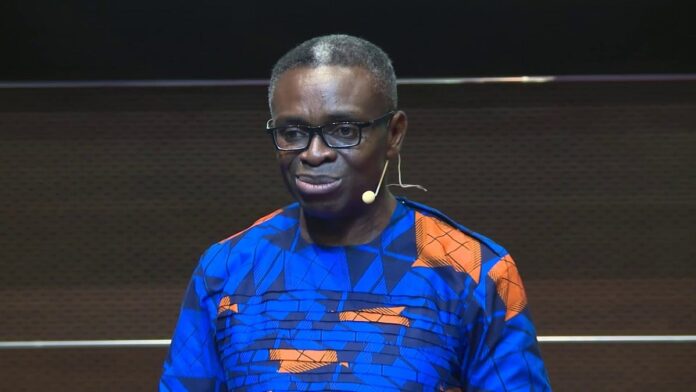Economic Sustainability Plan: Grand Ambitions, Weak Capacity – Afrinvest
Afrinvest, a leading investment banking firm, has explained why the Nigeria’s Economic Sustainability Plan remains a grand ambition amidst weak capacity to deliver.
It would be recalled that in early April 2020, the Federal Government inaugurated the Economic Sustainability Committee (ESC) with a mandate to develop a response to deal with the health and economic impacts of the COVID-19 pandemic.
However, Afrinvest observed that the fall in oil prices to a two-decade low of around $20 per barrel made this urgent.
“This is much like how the oil price crash between 2014 and 2016 necessitated the Economic Recovery and Growth Plan (2017-2020) which is nearing completion”, the investment firm added.

Meanwhile, this week, the Federal Executive Council (FEC) approved the 2020 Nigeria Economic Sustainability Plan (ESP), the policy programme developed by ESC.
This came in line with the terms of reference for ESC.
Afrinvest said the new plan is based on three pillars including real sector and fiscal & monetary policy measures, with implementation as the third leg.
The ESP lays out ambitious projects to achieve economic sustainability, increase production, reduce unemployment and achieve exchange rate stability.
These projects cut across agriculture, road infrastructure, energy, housing and technology, among others.
“In our opinion, the proposed reforms are far reaching and could support growth but the plan may fail to deliver on its objectives given funding challenges and weak political will”, Afrinvest remarked.
The plan is expected to be funded with ₦2.3 trillion which is 1.6% of 2019 GDP, with CBN lending accounting for about half.
“Our first concern is with the negligible size of the intervention in the face of ambitious objectives.
“This is unsurprising as the FG lacks resources given that debt service to revenue was 99.2% in Q1:2020.
“Borrowing of about ₦5.1 trillion which translated to 3.5% of 2019 GDP is required to plug this year’s fiscal deficit”, the firm highlighted.
Afrinvest said similarly, FG’s huge indebtedness to CBN beyond acceptable thresholds since 2018 would restrict the scope of the apex bank’s intervention.
Banks are also reluctant to lend in a risky environment, which means that on-lending activities would proceed at a slow pace despite the need for urgency, Afrinvest stated.
The plan anticipates that the economy could contract by as much as 4.4%-8.9% without stimulus, which is closer to our expectation after accounting for size and the channels of disbursing the stimulus.
Just this week, the IMF downgraded its growth forecast for the Nigerian economy to -5.4% from -3.4% in April as the scale of the impact of the pandemic on economic performance became slightly clearer.
Afrinvest explained that beyond the financing challenge, the plan also doubles down on policies that have failed to deliver growth in Nigeria.
The firm held that in agriculture where the mantra remains self-sufficiency, there is little emphasis on the need to raise yields neither would the proposed measures achieve that objective.
“There is also no clear financing structure for the mass housing programme which is expected to supply 300,000 homes in 12 months”, Afrinvest added.
For context, Nigeria’s housing deficit was estimated at around 17 million units in 2012 and 22 million in 2018 according to the Federal Mortgage Bank.
In the same vein, Nigerian Bureau of Statistic data shows that 700,000 homes are required annually to close the deficit.
Afrinvest said the plan is also silent on Nigeria’s trade policy.
FG Revenues Forecast to Rise to 22.9% on Subsidy Removal, Market Drive FX Regime
Especially, given the need to re-orient policy towards export promotion and trading with regional peers as many countries are looking to diversify their supply chains from Asia.
“The proposal to rein in spending in subsidies for petrol and electricity could expand the resources available to the FG but our expectations are measured given years of weak policy inconsistency.
“This also applies to plans for a unified exchange rate which would increase revenues from oil, and also adopting an exchange rate that is sustainable.
“Overall, despite obvious challenges, the ESP could still amount to much if the FG commits to reducing waste and creating conditions for private sector participation even when oil prices recover”, Afrinvest explained.
Economic Sustainability Plan: Grand Ambitions, Weak Capacity – Afrinvest












